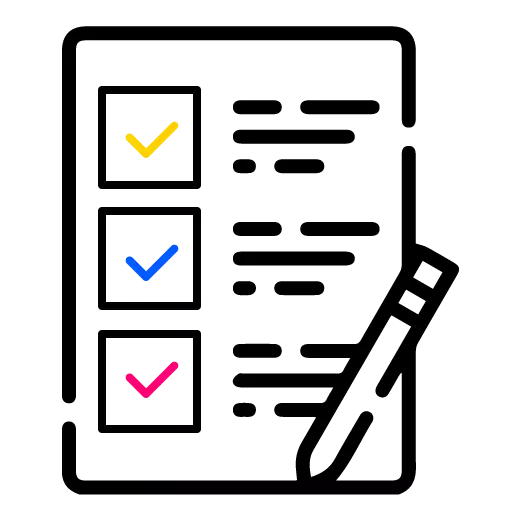Industry Knowledge
Steering Safer: 4 Benefits of Outsourcing Risk Assessments in the On-Demand Travel and Transportation Industry
What are the benefits of outsourcing new merchant/host risk assessments?
- Traversing Uncertainty within the ODTT Industry4 Key Benefits of Outsourced New Merchant/Host Risk AssessmentsThe Importance of New Merchant/Host Risk AssessmentsKey Features of New Merchant/Host Risk AssessmentsExploring Outsourcing OpportunitiesRedefining Risk Management: Safeguarding the ODTT Space with Us
As the on-demand travel and transportation (ODTT) industry grows rapidly, it is crucial for companies to consistently prioritize the safety of their customers and drivers above all else. To accomplish this, ODTT companies should conduct thorough merchants or hosts risk assessments – a process that involves identifying potential risks and preventing or minimizing them.
Traversing Uncertainty within the ODTT Industry
Customers increasingly place their trust—and their financial information—in the hands of businesses operating in this sector. However, the expansion in online transactions has allowed fraud to become equally sophisticated and widespread. These illicit activities continue to plague the industry, from identity theft to payment fraud. On a global scale, Juniper Research projected that losses from online payment fraud alone could reach $48 billion annually by 2023.
Moreover, the interconnected structure of the ODTT industry, with its reliance on third-party merchants and hosts, poses an additional layer of risk. In this setup, a single player's credibility affects the entire ecosystem's reputation.
4 Key Benefits of Outsourced New Merchant/Host Risk Assessments
The constantly evolving fraud landscape demands specialized expertise and extensive resources. Many on-demand transportation and delivery companies are turning to outsourced risk assessments as a practical and efficient solution. By doing so, they can tap into a wide range of benefits—from expert knowledge to cutting-edge technology and cost-efficient processes—while enhancing their ability to scale with ease:

Harnessing the Power of Expert Insight
Outsourcing risk assessments provides access to experienced professionals who specialize in detecting and mitigating risks. Third-party providers have a unique perspective, dealing with various business models and fraud incidents. They can identify potential risks early and implement robust preventive strategies.

Leveraging Advanced Technology and Cutting-edge Tools
Outsourcing offers access to advanced technology and analytical tools that some businesses may find too expensive. Expert firms use artificial intelligence (AI), machine learning (ML), and predictive analytics to detect fraud, identify anomalies, and assess risks, providing a more accurate risk profile.

Scaling with Agility
Providers can easily scale services to accommodate new entries without compromising quality, allowing companies to focus on core business functions while ensuring an efficient risk management process.

Achieving Cost-Effectiveness
Building an in-house risk assessment team is expensive and requires significant investment in technology. Outsourced providers offer a streamlined approach and cost savings by charging only for the services used.
The Importance of New Merchant/Host Risk Assessments
New merchant or host risk assessments defend against fraudulent activities, reputational damage, and non-compliance with regulations, all of which are crucial in earning the customer and stakeholder trust.
By conducting quick and precise assessments, potential fraud is detected early on, allowing the implementation of preventive measures. Regular assessments also safeguard the company's reputation. Proper risk assessments ensure regulatory compliance, prevent costly legal issues, and maintain operational transparency, which protects stakeholder trust.
Key Features of New Merchant/Host Risk Assessments
When selecting an assessment model, businesses must consider several factors to ensure thorough analysis and risk mitigation.

Identification of High-Risk Merchants/Hosts
High-risk merchants or hosts can be a chink in the armor of any business. They pose significant financial and reputational risks, highlighting the importance of identifying them during initial assessments. A thorough background check, reputation analysis, and understanding of their operation models, among other things, are crucial for this identification process.

Evaluation of Financial and Operational Risk
Assessing financial and operational risk involves analyzing the merchant's financial solvency, market standing, operational efficiencies, and business continuity plans. Any anomalies or red flags during this evaluation could hint towards latent financial troubles or potential operational disruptions, warranting immediate attention and resolution.

Analysis of Transaction Data and Patterns
Transaction data provides a wealth of information. Identifying transaction patterns can bring to light potential fraudulent activities or risky behaviors. For instance, sudden changes in transaction volumes, frequent high-value transactions, or a considerable number of chargebacks can indicate underlying risks.

Compliance with Regulations and Industry Standards
Compliance is crucial in mitigating legal and reputational risks. The risk assessment should include a comprehensive review of the merchant's adherence to local, state, and federal laws and industry standards and best practices.

Integration with Ongoing Monitoring and Reporting
Risk assessment is not a one-time process. Continuous monitoring and reporting of merchant activities form an integral part of it. Therefore, the ability to smoothly integrate the risk assessment with the business's existing systems for ongoing oversight and alert mechanisms is critical.
Exploring Outsourcing Opportunities
When managing new merchant/host risk assessments, companies have a few routes to consider. Each engagement model offers its own benefits, and the choice largely depends on the business's specific needs, strategic objectives, and operations.
Firstly, there's the option to outsource risk assessments to a risk management partner or third-party provider. These firms have specialized expertise, a team of seasoned professionals, and sophisticated risk management tools, allowing them to offer tailored services for each client's unique risk environment.
The second approach is having an in-house risk management team and supplementing it with outsourced support for specialized tasks. This allows more control over risk assessments while leveraging external expertise for niche skills such as advanced data analytics or regulatory compliance.
Some companies may opt for a hybrid model for risk assessment, combining in-house teams and third-party providers to maximize resources and expertise. In-house teams can focus on their strengths while utilizing industry-wide insights of the outsourced experts for better risk management.

Redefining Risk Management: Safeguarding the ODTT Space with Us
Outsourcing merchant/host risk assessments to third-party providers benefits ODTT companies, as their specialized expertise and technologies result in improved safety and security, stronger trust and loyalty, and enhanced company reputation.
In terms of risk assessment, it's important to have a partner who can understand your needs and provide custom-fit solutions for your business. TaskUs is an experienced outsourcing partner that seamlessly integrates human expertise and advanced technology to deliver comprehensive merchant/host risk assessments and compliance services. Their teams of experts work with cutting-edge tools and technologies, such as Generative AI, to identify potential risks and create strategies to mitigate them.
References
We exist to empower people to deliver Ridiculously Good innovation to the world’s best companies.
Useful Links








